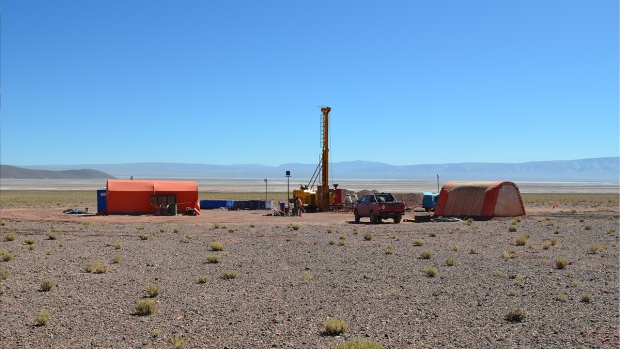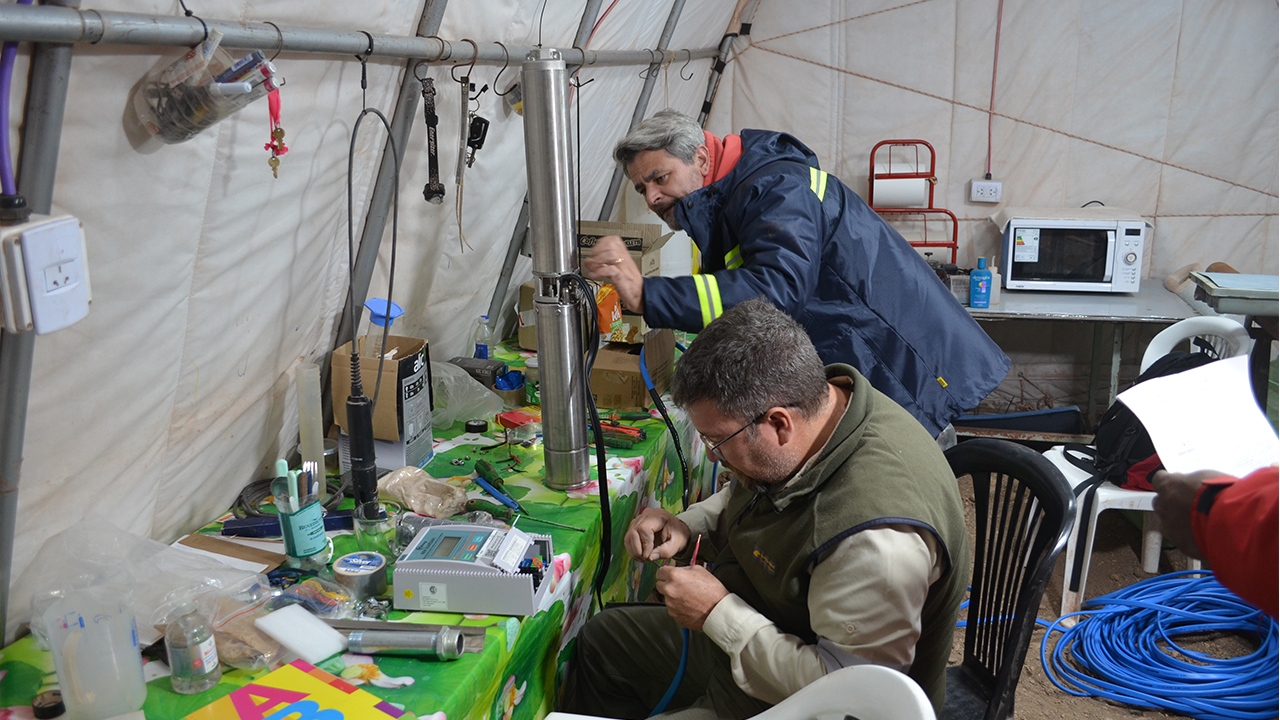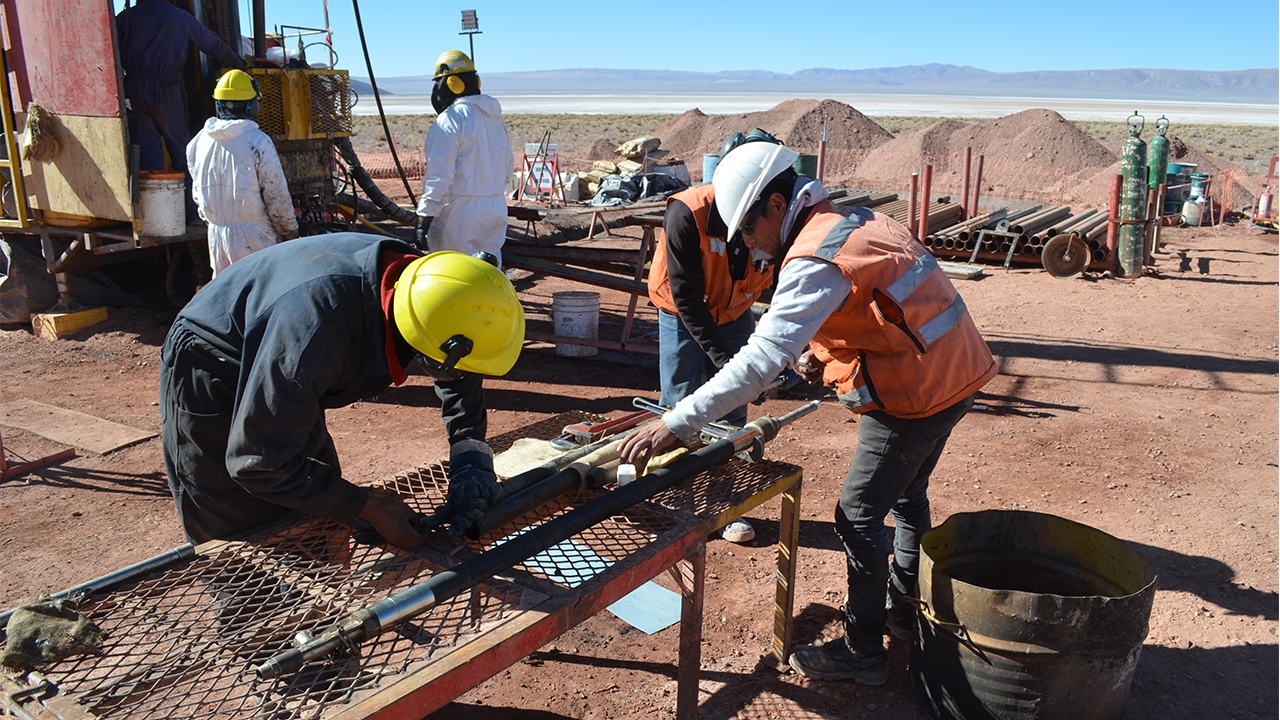Jan 16, 2024
Major Argentina Lithium deal underscores growing demand from EV manufacturers
Presented by: Market One


The global race for lithium, fueled by the surge in electric vehicle (EV) demand, has positioned Argentina as a key player in the transition towards cleaner energy technologies. Buoyed by a new political leadership that is emphasising investment-friendly policies, the South American country’s rise to the forefront of lithium production recently got a major boost with a major deal between Argentina Lithium & Energy Corp. and Stellantis N.V., one of the world’s leading automakers.
The US$90 million in ARS$ peso equivalent investment is a strategic move by Stellantis N.V. to secure potential supplies of lithium, a critical component for EV batteries, from Argentina Lithium & Energy Corp. (TSX.V: LIT | FSE: OAY3 | OTC: PNXLF).
The deal involves an offtake agreement that allows Peugeot Citroen Argentina S.A., a subsidiary of Stellantis N.V. (“Stellantis”) to purchase up to 15,000 tonnes of future lithium production annually for seven years from Argentina Lithium’s subsidiary, Argentina Litio y Energia S.A. (“ALE”)— along with an option to extend — to potentially help address the looming lithium shortage and the rapidly growing demand from the EV sector.
It also offers Stellantis a 19.9% stake in Argentina Lithium’s Argentine subsidiary (convertible into a 19.9% of the parent company).
“Stellantis was inspired to invest in our company to help secure its supply lines as automotive producers have huge requirements for lithium in the coming years. It reflects a forward-thinking approach by the industry,” said Miles Rideout, Vice President of Exploration for Argentina Lithium & Energy.
“We have a mandate from Stellantis to get our projects through the exploration stage to resource assessment and, if positive, development as quickly as we can without overriding concerns about how to finance that work,” said Rideout, who has decades of experience working with many of the most successful exploration teams in South America.
A transformative year for Argentina Lithium & Energy

Nikolaos Cacos, CEO of Argentina Lithium said he expects 2024 to be a transformative year for his company which has assembled some of the most prospective properties in the Lithium Triangle, a geographic area that straddles Argentina, Bolivia and Chile and is home to more than half of the world’s resources of the coveted mineral.
The company is also a member of the Grosso Group, a resource management group that has pioneered mineral exploration in Argentina since 1993. Argentina Lithium has four key projects, covering over 67,000 hectares in the country’s portion of the Lithium Triangle, each with its unique prospects and strategic significance:
- The 5,000+ hectare Rincon West Project is located adjacent to the large and recent Rio Tinto acquisition of the Rincon lithium project for $825 million
- The Antofalla North Project covers more than 10,000 hectares of mining claims
- The Pocitos Project where historic sampling in a very large and under-explored basin measuring approximately 60 km by 20 km has already returned lithium values
- The Incahuasi Project, another large basin of about 25,000 hectares, where Argentina Lithium has completed initial geophysical, surface sampling and drilling programs.
“We have cleared the biggest hurdle for any junior today, which is having financing secured for a significant amount of planned exploration activity, to the tune of up to US$15 million dollars next year alone if we complete all of our plans,” said Cacos.
“In fact, the Stellantis funding is expected to carry us through exploration drilling to potential resource definition and potentially initial engineering study stages at Rincon West and Antofalla North allowing us to build value with minimal dilution for our investors,” he said.
Alina Islam, a mining analyst at Red Cloud Securities said the US$90M in Argentina peso investment from Stellantis is a major stamp of approval for Argentina Lithium.
“We believe that deals like this are very positive for the outlook for lithium, as it demonstrates the importance of the commodity in helping achieve the decarbonization goals set by various governments across the globe. We also believe that investment and M&A activity between automakers and miners will continue, as concerns around lithium scarcity grow, especially in the context of geopolitical issues,” said Islam.
Stellantis deal to drive accelerated exploration programs

Armed with the new Stellantis investment, Argentina Lithium & Energy recently announced accelerated exploration targets for 2024, which includes a plan to complete up to 30 drill holes at the company's large and highly prospective Antofalla North project.
The goal is to bring Antofalla North to a resource delineation stage shortly on the heels of the company's flagship Rincon West project, where the 11th of 20 planned exploration drill holes is underway.
Argentina Lithium & Energy has also expanded the exploration program plans for its Pocitos and Incahuasi projects.
The company’s deal with Stellantis comes in the wake of several reports predicting that the world could face a shortage of lithium as soon as 2025. For instance, the world produced 540,000 metric tons of lithium in 2021, and by 2030 the World Economic Forum projects that global demand will reach over 3 million metric tons, reported CNBC.
According to forecasts by S&P Global Commodity Insights, EV sales are set to reach 13.8 million in 2023 but will subsequently proceed to skyrocket to over 30 million by 2030.
“We do fundamentally believe in a shortage for the lithium industry. We forecast supply growth of course, but demand is set to grow at a much faster pace,” said Corinne Blanchard, Deutsche Bank’s Director of Lithium and Clean Tech Equity Research, according to CNBC.
The growing momentum behind Argentina’s lithium march and the opportunities afforded by the policies of the country’s incoming president Javier Milei, were the key topics that had the attention of the 1,700 attendees at the recent Litio En Sudamérica (Lithium South America) Seminar held in northwestern Argentina.
"If Argentina does not achieve its commitment as a major lithium chemical producer in the next few years, the EV revolution will be challenging," Joe Lowry, President of consulting firm Global Lithium, told attendees.
Argentina currently has the world's second-largest lithium reserves estimated to be in the region of 20 million tons, according to the U.S. Geological Survey. Forbes reported that Argentina’s production of the metal that's desperately needed for the world's energy transition is ramping up and might rise to as high as 120,000 t/year in 2024, from a current level of around 40,000 t/year.
“Milei's encouragement of private sector investment could raise the game further,” said Forbes.
Given the support for this being the lithium decade, Argentina Lithium & Energy’s pedigree and plans put it in a very advantageous position to benefit from the increasing global demand for lithium.
To learn more about Argentina Lithium & Energy, visit their website here, as well as on: